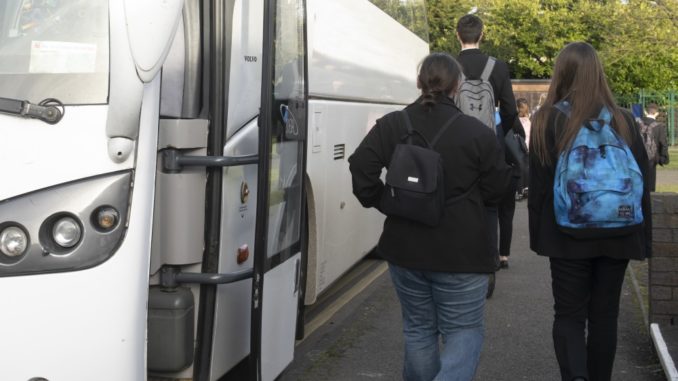
Fears that a legal challenge over disabled children’s access to school transport could lead to the service being withdrawn for about 900 pupils or taxpayers left with an annual £1.6 million bill appear to have been overcome, as a council laid out its plans for the service’s future.
Next week North Yorkshire County Council’s executive looks set to approve proposals to reintroduce charges for pupils who are not entitled to free transport from September, despite predictions they could eventually lead to nearly 200 pupils being denied transport to school.
The leadership of the authority will also consider providing free travel for non-entitled or post-16 pupils until July 2021, so post-16 pupils are able to finish their studies without disruption to their transport arrangements.
An important factor in the decision for the council, which spends more than £24 million per year on home to school transport and is still facing having to make multi-million pound cutbacks, is that the proposals stand to generate about £260,000 extra annually for the authority.
The proposals come almost a year after a disability transport access campaigner, whose identity has not been revealed, issued a legal challenge over the Public Service Vehicle Regulations 2000 which prevented the council from charging pupils for travelling on buses that wheelchair users could not access.
In a letter to the council’s executive he said: “The school bus forms a social function for many pupils. Segregation is bad for communities and individuals. The negative effect is known and acknowledged in South African and American civil rights history.”
In response, the council was forced to drop charges for all pupils not entitled to free home to school transport, such as those aged over 16. Across the county there were 900 children buying spare places on school buses.
In a report to the executive, Ian Fielding, the council’s assistant director of transport, stated: “Most vehicles used for home to school transport do not comply with the regulations, but recent temporary Government exemptions will enable the council to reintroduce charges for most spare seats if it chooses to do so.”
Following lobbying by the council and other local authorities, the Government introduced temporary exemptions for non-accessible school buses carrying more than 20 per cent fare-paying passengers, while the council launched a public consultation on the future of the service.
The council’s executive will hear of the 380 responses to the consultation, 82 per cent felt the council should only use wheelchair accessible vehicles to transport pupils to and from school where required to meet known needs and 85 per cent believed all spare seats should be offered to non-entitled and post-16 pupils.
The responses from the consultation were also broadly supportive of the proposal to reintroduce charges for non-entitled pupils.
Under the proposals, pupils with special educational needs or disabilities would be prioritised for spare seats, followed by pupils who have previously travelled on the bus.
The report concludes when the Government exemptions for non-accessible vehicles carrying more than 20 per cent fare paying passengers expire, it is likely the council will have to deny transport to up to 190 non-entitled and post-16 pupils as it will “not be economic in all cases to replace vehicles with accessible or otherwise exempt ones”.


Be the first to comment